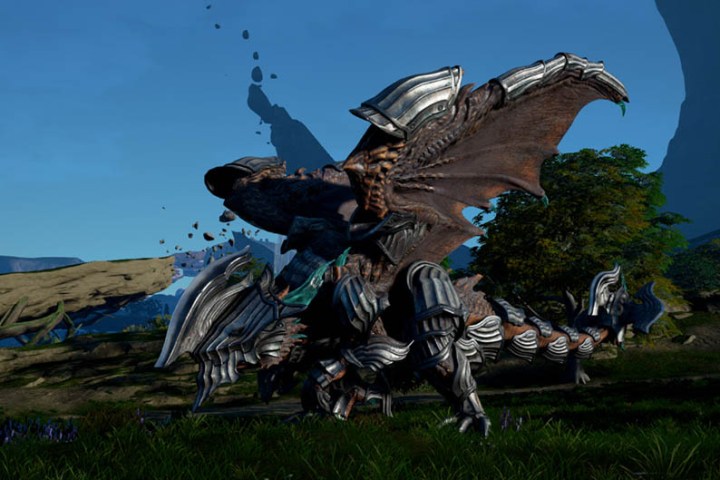
In a press release addressing the rumors, a Microsoft spokesperson said, “After careful deliberation, Microsoft Studios has come to the decision to end production for Scalebound. We’re working hard to deliver an amazing lineup of games to our fans this year, including Halo Wars 2, Crackdown 3, State of Decay 2, Sea of Thieves, and other great experiences.”
Scalebound was slated for release sometime this year, after being pushed back from its original 2016 release window. Revealed at E3 2014, the game was supposed to be a new direction for Hideki Kamiya and PlatinumGames. After years of focusing on stylized action titles, Scalebound was developed with heavy RPG elements elements in mind.
Following its cancellation, Kamiya took to Twitter to give his perspective on the news and pledge that PlatinumGames would continue work on other projects.
“As you may have already heard, Scalebound has unfortunately been canceled. I’m very sorry to everyone who was looking forward to the game,” Kamiya said. “Sorry to bring you such bad news at the start of the year. All I can do for you is to promise to keep delivering fun games.”
Kamiya also dispelled rumors that the game’s cancellation was due in part to his alleged mental health issues, saying that there was “no way” that he had to take time off from development to address any such issues.
Scalebound was originally set aside in 2006 in favor of Bayonetta. PlatinumGames wound up developing The Wonderful 101 and Bayonetta 2 for Wii U, before finally getting back to Scalebound. After sitting on the back burner for seven years, the game officially entered development in 2013.
Along with E3 2014, Scalebound made appearances at Gamescom 2015 and E3 2016.
As shown in the E3 2016 gameplay trailer above, Scalebound placed gamers in the shoes of Drew, as he moved across the lands of Draconis accompanied by a dragon named Thuban. Incorporating technological aspects in the fantasy setting, Thuban was controlled by artificial intelligence. Players could also view the world through the eyes of the dragon by entering dragon link mode. Because of this mechanic, the game included both third- and first-person perspectives.
Kamiya and his team were quiet about the narrative of Scalebound. In an interview with Metro UK, Kamiya discussed the difficulties involved in putting together a successful video game trailer. “We haven’t even touched the story yet, so we still need to explain the story. So if you think about the video we put out I think, just personally speaking, we haven’t explained enough for people to kind of get a full vision of what Scalebound is. And I want to keep explaining more as we move forward,” he said.
Unfortunately, this cancellation means we will never see the full vision of Scalebound.


